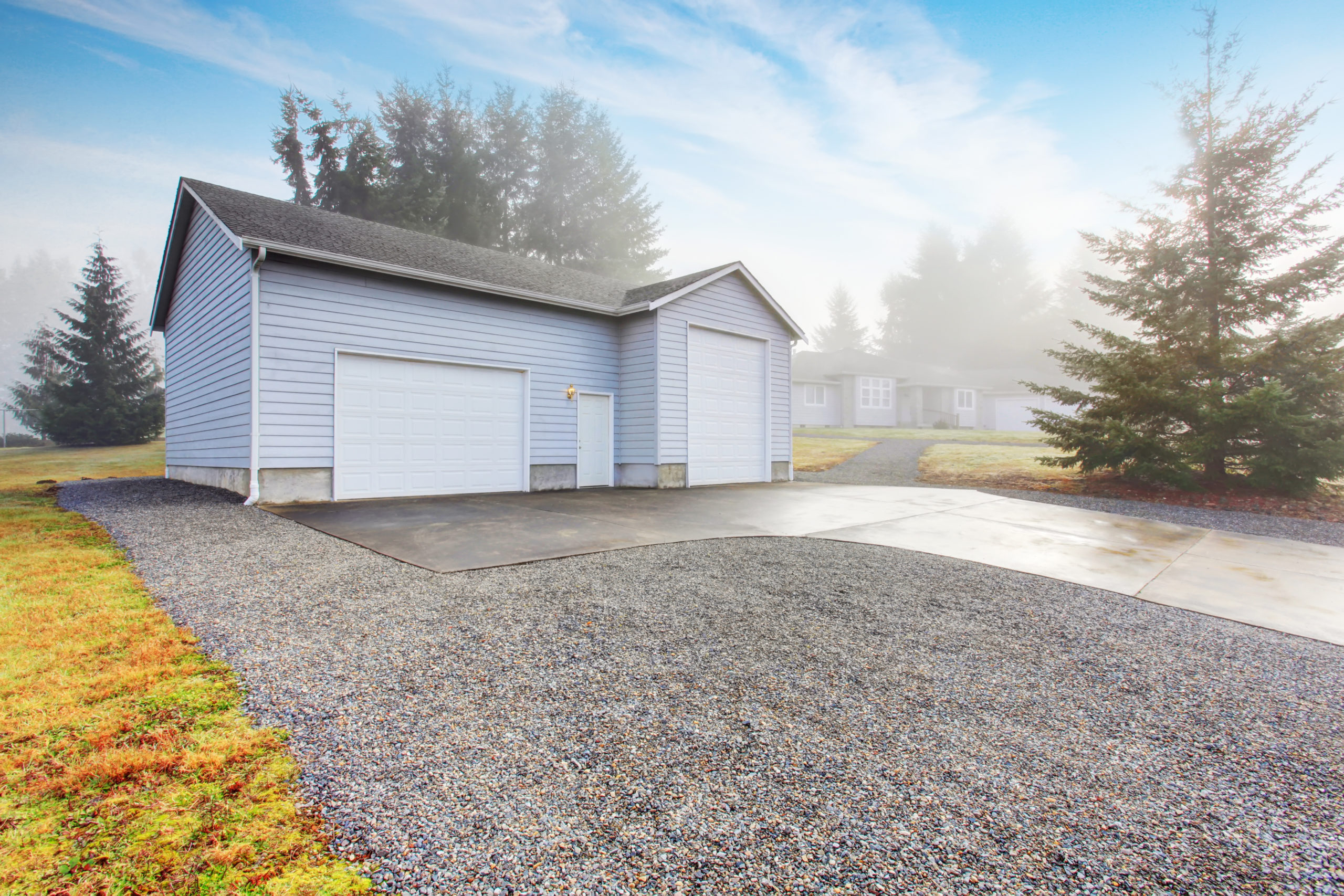
Too often, we neglect our driveways because they’re just one of those difficult problems to solve. But would your life be easier if you had an asphalt driveway, instead of gravel? Let’s take a closer look at the differences between the two, so you can make the best choice for your home.
When deciding on a driveway material, it’s important to weigh your options. The material you choose can affect its appearance, durability, maintenance, functionality, and of course, your budget. Here’s everything you need to know about the two options:
Gravel vs. Asphalt Driveways
If you’re considering installing a new driveway, you might be considering gravel vs. asphalt driveways. Both options have pros and cons, and we’ll dive into them so you can make an educated decision.
What Are Gravel Driveways?
Gravel is any loose stone or rock larger than a piece of sand but smaller than cobble. The size range is from 1/10 inch to 2 ½ inches in diameter. Gravel can be used for many applications and is a common material throughout the United States for driveways.
What Are Asphalt Driveways?
Asphalt is one of the most common materials for driveways, roads, and parking lots. It’s a semi-solid form of petroleum and is made up of a mixture of crushed stone, gravel, sand, and bitumen. Bitumen is a byproduct of petroleum that holds the mixture together.
What Are the Pros and Cons of Gravel Driveways?
Gravel is a popular option for driveways because it’s cheaper than other materials, but what are the downsides? Do they outweigh the upsides? Take a look and decide for yourself.
The Pros of Gravel Driveways
- Budget-friendly – Gravel is one of the most affordable materials for driveways, with the average cost being between $1.25 and $1.80 per square foot.
- Variety of styles available – Gravel comes in a variety of colors, so it’s easy to find an option that complements your home’s aesthetic.
- Quick installation – Laying a gravel driveway can be done in one day and used immediately after finishing.
- Easy repairs – If your driveway gets potholes, you can easily repair them by adding fresh gravel to the area.
The Cons of Gravel Driveways
- Dirty – When you drive down gravel driveways, dust, dirt, and debris can fly up and cause your vehicle or home to become dirty.
- Difficult snow and ice removal – If you live in a cold climate, you might encounter trouble removing snow and ice from your gravel driveway. Some snow blowers and plows can’t be used because they will disturb the crushed rock.
- Prone to ruts – Gravel driveways with a high traffic level may be prone to developing ruts.
- Requires maintenance – To get the most out of your investment, you’ll need to maintain your gravel driveway regularly. This includes regrading, raking, removing debris, pulling weeds, fixing holes, etc.
What Are the Pros and Cons of Asphalt Driveways?
A high-quality asphalt driveway can perform similarly to concrete driveways but at a fraction of the cost. However, asphalt driveways are far more expensive than gravel driveways. Take a look at the pros and cons of asphalt driveways to decide if it’s the right option for your home.
The Pros of Asphalt Driveways
- Long lifespan – With proper maintenance, asphalt driveways can last between 12 and 35 years.
- Sleek Appearance – Asphalt offers a sleeker and more orderly appearance compared to gravel driveways.
- Flexible in cold climates – Asphalt is a petroleum product, so it’s flexible and less crack resistant than concrete. It’s also less likely to be damaged by salt and ice melt.
- Easy installation – Professionals can easily install asphalt driveways, usually within one day.
The Cons of Asphalt Driveways
- Higher price – Asphalt costs more than gravel driveways, coming in at about $2 to $6 per square foot.
- Style limitations – Black is the only color available for asphalt driveways.
- Required maintenance – Asphalt driveways should be sealed every two to five years, and cracks and holes should be repaired as soon as possible.
- Prone to heat – Asphalt can reach high temperatures during hot weather conditions. It can become pliable and soft, which causes indentations and marks.
Should You Install a Gravel or Asphalt Driveway?
To summarize, asphalt driveways provide a strong, flat surface that’s easy to take care of during winter months. Gravel is significantly less expensive and requires maintenance, but it can be done yourself. Plus, it comes in an array of styles and colors. Weigh your options and make an informed decision that’s best for your property.
Make the Most Out of Your Gravel Driveway Investment
If you’re interested in installing a gravel driveway, invest in Agritek’s Driveway Scraper. You can maintain and grade your gravel driveway anytime you want. You’ll be able to make the most out of your investment and keep your driveway in tip-top condition all year long.
Need more info? Contact our experienced professionals today!
The material and information contained on this website is for general information purposes only. You should not rely upon the material or information on the website as a basis for making business, legal or other decisions.
